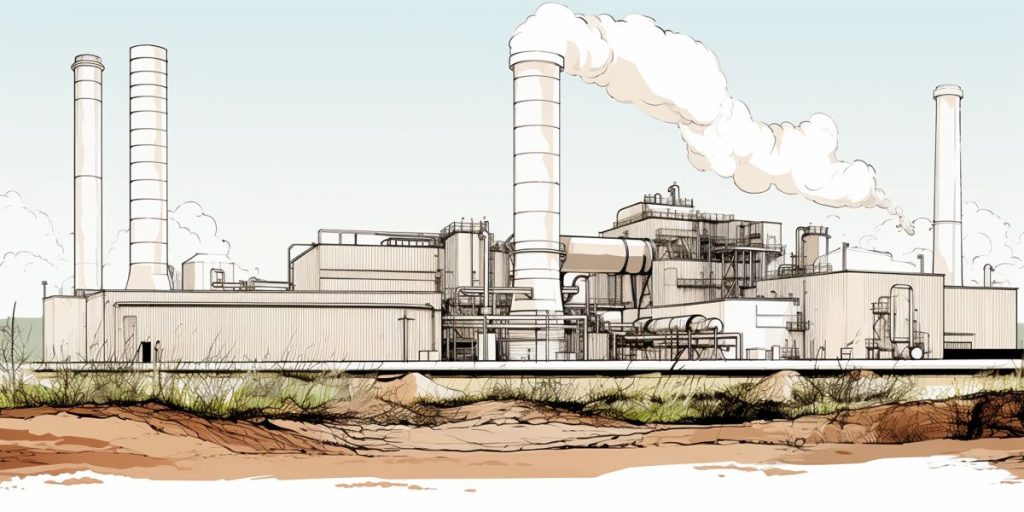The Pentakomo waste treatment plant in Cyprus is facing eviction due to failure to produce a viable Solid Recovered Fuel (SRF), management disputes, technological challenges, and lack of buyers for its output. The government is stepping in to find a sustainable solution for waste management and plans to engage a consultant to upgrade the plant and align it with the Municipal Waste Management Plan.
Why is the Pentakomo waste treatment plant facing eviction?
The Pentakomo waste treatment plant, operated by Oeda, is facing eviction due to its failure to produce a viable Solid Recovered Fuel (SRF) as intended, management disputes, technological challenges, and lack of buyers for its output. The government’s intervention aims to find a sustainable waste management solution.
Pentakomo’s waste treatment plant, operated by Oeda, faces imminent eviction as the government has issued a 14-day notice. The plant, which serves the Limassol district, was initially established with the goal of reducing municipal waste burial—in essence, to mitigate the environmental impact of traditional landfill methods.
A Failed Initiative
Launched with the intent to produce Solid Recovered Fuel (SRF), the Pentakomo facility’s operations have not gone as planned. Six years into its operation, the plant’s output has not been utilized as hoped. The secondary fuel, intended to be a valuable resource, has found no buyers, leading to the undesirable outcome of waste being diverted back to landfills.
Operational and Technological Challenges
The issues at Pentakomo stem from both management disputes and technological missteps. Medcon & DB Technologies JV, the management company, has voiced concerns over the lack of support from government agencies and raised alarms about potential health risks. Compounding these management issues, a controversial change in technology post-contract award shifted the plant’s capabilities from the intended mechanical biological treatment process to anaerobic biological treatment. This switch resulted in the production of Refuse Derived Fuel (RDF), a material with higher moisture and lower calorific value, making it a less effective fuel alternative—contrary to project specifications.
Government Intervention and Future Steps
In response to these challenges, the government has taken decisive action, requesting Oeda to relinquish control of the facility. The waterboard, along with other district development and waste management entities, is poised to assume interim operational control. A consultant will be engaged to prepare tender documents for the ongoing and future operation of the plant, as well as to plan upgrades in line with the Municipal Waste Management Plan for the next decade.
A Transition with Environmental Stakes
The transitional period ahead is critical, as the government seeks to rectify the Pentakomo plant’s course and align it with the wider waste management strategy. The aim remains to find a sustainable solution for municipal waste, reducing reliance on landfill disposal, and establishing a plant that can effectively produce a viable alternative fuel source.
Technology and Expectations
As the search for a new management company begins, there is hope that advancements in waste treatment technology, combined with effective management, can turn the Pentakomo plant’s operations around. The goal is to meet the environmental objectives initially set out and to create a model for waste treatment that can be replicated in other districts, contributing to a greener, more sustainable Cyprus.
Quick Recap
- The Pentakomo waste treatment plant in Cyprus is facing eviction due to failure to produce a viable Solid Recovered Fuel (SRF), management disputes, technological challenges, and lack of buyers for its output.
- The government is stepping in to find a sustainable solution for waste management and plans to engage a consultant to upgrade the plant and align it with the Municipal Waste Management Plan.
- The plant was initially established to reduce municipal waste burial and mitigate the environmental impact of traditional landfill methods.
- The plant’s operations have not gone as planned, with its output of secondary fuel finding no buyers and waste being diverted back to landfills.
- The government has requested the current operator to relinquish control of the facility, and a consultant will be engaged to plan upgrades and future operation in line with the Municipal Waste Management Plan.

